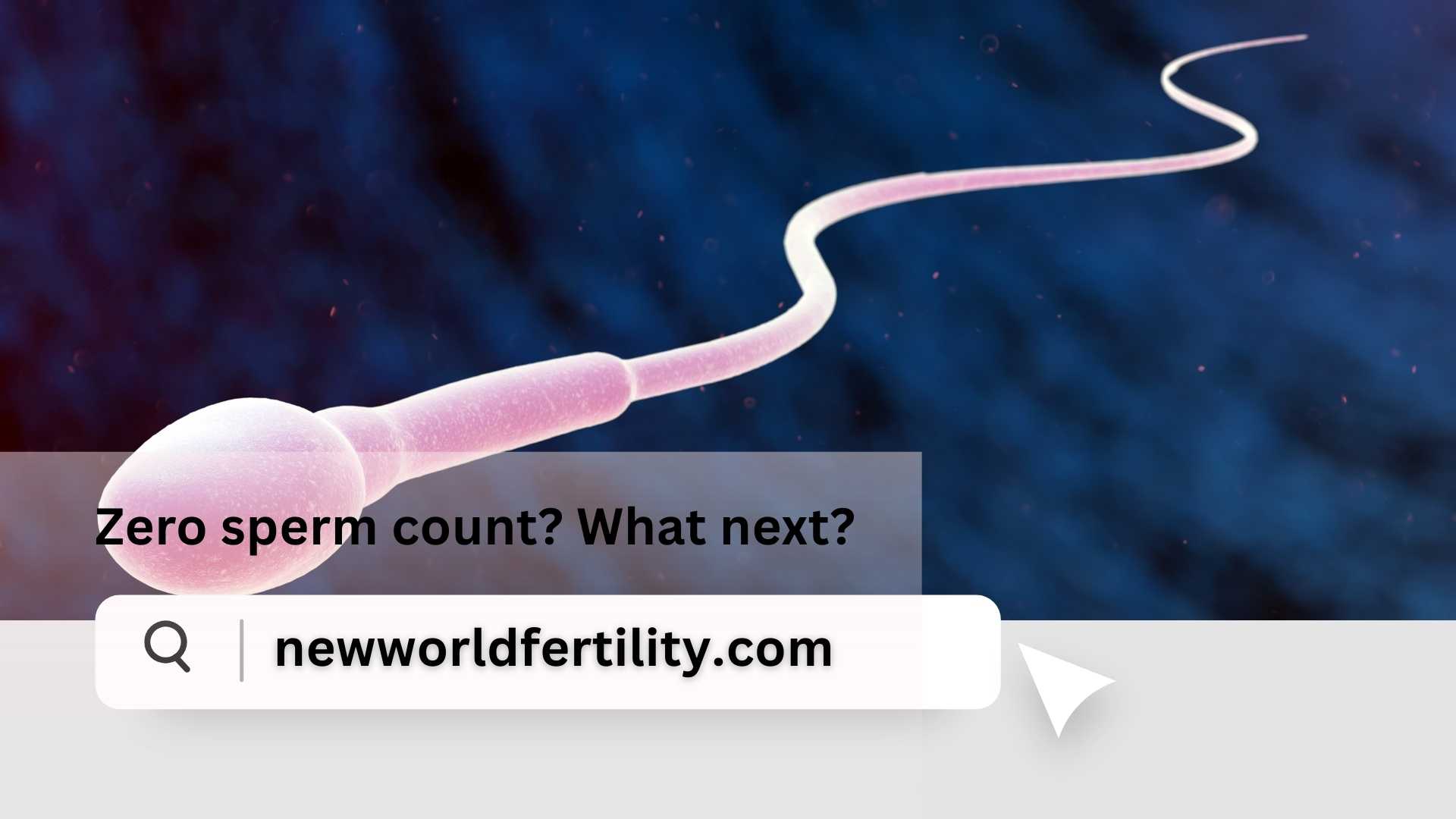Zero sperm count? What next?
Receiving a diagnosis of azoospermia, or zero sperm count, can be a devastating experience. It can feel like a dream of parenthood is shattered. However, it's important to remember that you're not alone, and there are many options available today. At New World Fertility Centre in Delhi, we're committed to helping couples overcome infertility challenges and achieve their dream of having a family.
Understanding Azoospermia
Azoospermia is a condition where there are no sperm in the ejaculate. It can be caused by various factors, including:
Obstructions: Blockages in the reproductive tract can prevent sperm from reaching the ejaculate.
Hormonal imbalances: Issues with hormone production can affect sperm production.
Genetic factors: Certain genetic conditions can lead to azoospermia.
Lifestyle factors: Smoking, excessive alcohol consumption, and exposure to toxins can impair sperm health.
Diagnosis and Evaluation
If you're experiencing infertility, it's essential to seek professional medical advice. At New World Fertility Centre, our experienced fertility specialists will conduct a thorough evaluation to determine the underlying cause of your azoospermia. This may involve:
Semen analysis: A sample of your ejaculate will be examined under a microscope to assess sperm count, motility, and morphology.
Physical examination: Our doctor will examine your reproductive organs to identify any abnormalities.
Hormone testing: Blood tests may be performed to measure hormone levels.
Ultrasound: An ultrasound can help visualize the reproductive organs and identify any blockages or abnormalities.
Treatment Options
The appropriate treatment for azoospermia will depend on the underlying cause. Here are some common approaches:
Hormone Therapy: If hormonal imbalances are contributing to azoospermia, hormone therapy may be recommended to stimulate sperm production.
Surgery: In some cases, surgical procedures can address obstructions or correct anatomical abnormalities that are affecting sperm production.
Testicular Sperm Extraction (TESE): If there are sperm present in the testicles but not in the ejaculate, TESE can be performed to retrieve sperm for assisted reproductive technologies (ARTs).
Assisted Reproductive Technologies (ARTs): ARTs, such as In Vitro Fertilization (IVF) or Intracytoplasmic Sperm Injection (ICSI), can be used to help couples with azoospermia conceive.
IVF and ICSI
IVF involves fertilizing eggs with sperm in a laboratory setting and then transferring the embryos into the uterus. ICSI is a specialized technique where a single sperm is injected directly into an egg. These procedures can be highly effective for couples with azoospermia.
Sperm Donation
If treatment options are not successful or not feasible, sperm donation may be considered. This involves using a donor's sperm to fertilize an egg and create an embryo.
Conclusion
While a diagnosis of azoospermia can be disheartening, it's essential to remember that there are many options available today. At New World Fertility Centre, we're committed to providing compassionate care and advanced treatments to help couples with azoospermia achieve their dream of having a family. With the right approach and support, it's possible to overcome this challenge and experience the joy of parenthood.
FAQs
1. What is azoospermia?
Azoospermia is a medical condition where no sperm is found in the ejaculate. This can affect male fertility and make natural conception challenging.
2. What causes azoospermia?
There are two main types of azoospermia, each with different causes:
- Obstructive Azoospermia: Caused by blockages in the reproductive tract.
- Non-Obstructive Azoospermia: Results from issues in sperm production due to genetic conditions, hormonal imbalances, testicular damage, or prior infections.
3. How is azoospermia diagnosed?
Diagnosis involves:
- Semen analysis to confirm the absence of sperm.
- Blood tests for hormone levels.
- Physical exams and sometimes genetic testing.
- A testicular biopsy may also be performed in some cases.
4. Can azoospermia be treated?
Yes, treatment depends on the cause:
- Surgical procedures like vasectomy reversal or sperm retrieval (TESE/PESA) for obstructive cases.
- Hormonal therapy may help in cases caused by hormonal imbalances.
- Assisted reproductive technologies (ART), such as IVF with ICSI, can be used with surgically retrieved sperm.
5. What are the treatment options for obstructive azoospermia?
For obstructive azoospermia, treatments include:
- Vasectomy reversal if previous surgery caused the obstruction.
- Sperm retrieval techniques like Percutaneous Epididymal Sperm Aspiration (PESA) or Testicular Sperm Extraction (TESE), which retrieve sperm directly from the testes or epididymis for use in IVF.

 Sep-10-2025
Sep-10-2025